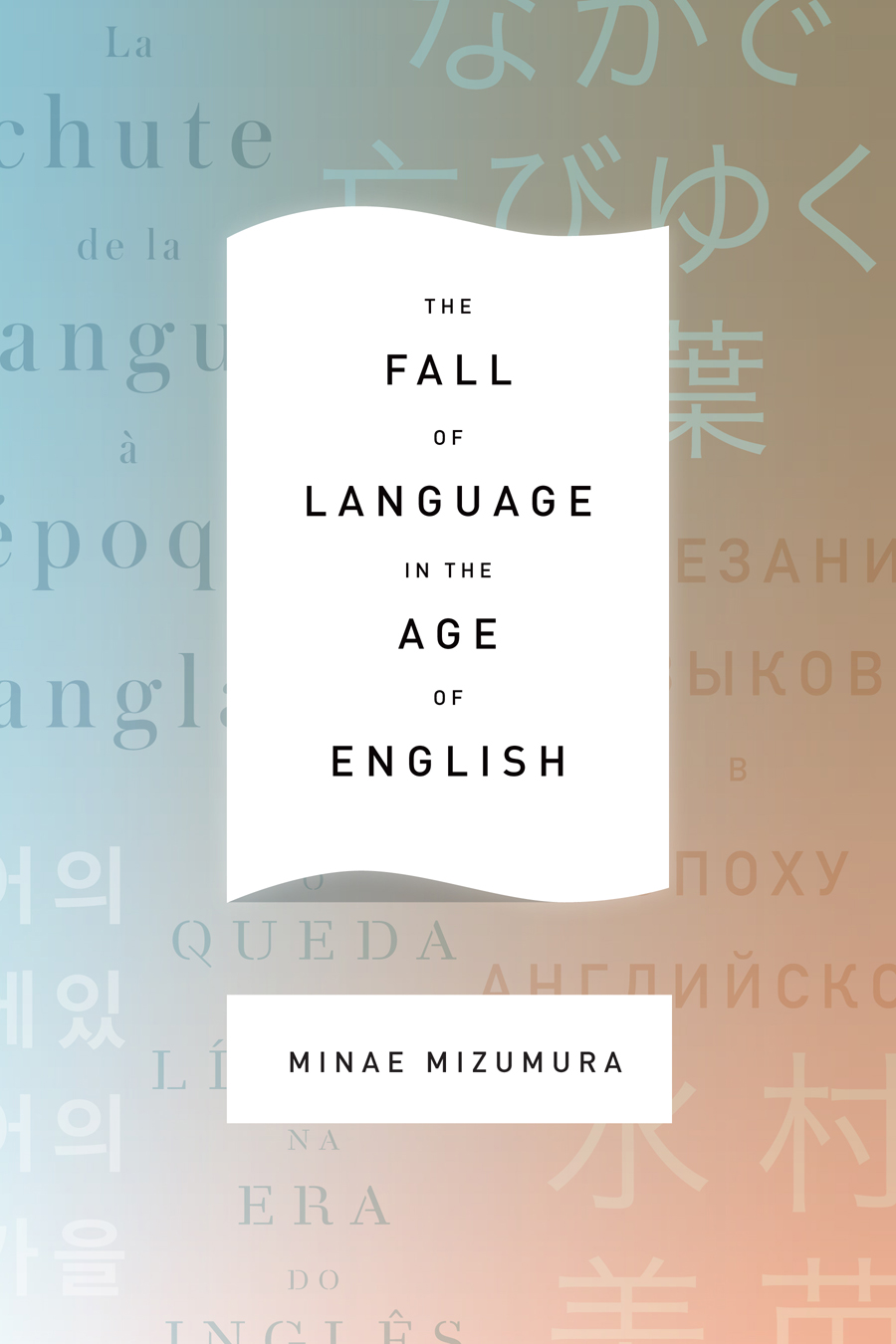Mizumura Minae’s ‘The Fall of Language in the Age of English’
‘A brilliantly analytical account of how the increasing prominence of English has gradually pushed other languages to a minor role’
‘A brilliantly analytical account of how the increasing prominence of English has gradually pushed other languages to a minor role’

I am an Italian writer sitting on a German train writing for a British magazine about a book by a Japanese author that I was only able to read because it was translated into English, which is the language I am writing in, my second. All of this is so normal today that its deeper implications hardly occurred to me before reading Minae Mizumura’s The Fall of Language in the Age of English (2014). It is a thought-provoking, deeply personal and yet brilliantly analytical account of how the increasing prominence of English as the site of international creativity and debate has gradually pushed other languages to a minor role, transforming – in Mizumura’s words – what previously were national cultures into local ones.
The Fall of Language is built around Mizumura’s personal experience: as an aspiring bilingual novelist who, in her youth, chose to reclaim her native Japanese instead of writing in English; as a successful author invited, in adulthood, to the famed Iowa Writers’ Workshop together with a host of similarly exoticized international guests; as an ageing, nationally famous Japanese writer whose complex, linguistically charged works (often playing with bilingualism and translation in their plot) fail to leave a mark on an international discourse increasingly dependent on the English-language market as a funnel and on the English-speaking public’s tastes and interests as a rulebook.
As a novelist, this allowed me to understand the specific frustration of seeing my Italian novels deemed ‘too Italian’ by many foreign publishers (one of whom later asked me why I didn’t use my talent to write ‘about something like Venice’, which would sell more), while perceiving my mastery of English to be insufficient to express what I feel to be literary writing. This also reminded me, as a critic, of what many of the Italian artists I grew up with had gone through, when their emerging careers first brought them in touch with an international scene. Their statements and explanations – fluent and captivating in Italian, which favours a specific style of intellectual writing and encourages a certain set of cultural reference – didn’t work as well in English. They sounded dull or out-of-touch. Ultimately, their style had to change to adapt to the new discursive environment – and their work changed too.
But perhaps most revealing of all is Mizumura’s focus on the reader experience. There are millions in non-English-speaking countries who grow up increasingly influenced by a canon that speaks to someone else’s experience and perspective, with Jane Austen and Ernest Hemingway and Virginia Woolf supplanting, instead of joining, the ranks of authors writing in, and about, the language they grew up with. They turn to British and American publications for coverage of great events, believing them to be more authoritative than their ‘local’ counterparts, and ultimately feel like second-class citizens of a cultural world in which they lack the credentials to speak for, and to, themselves. But Mizumura focuses also on the experience of English-language readers worldwide, who are condemned to ignore, ‘that the works that are usually translated into English [...] often only reinforce the worldview constructed by the English language, and preferably entertain readers with just the right kind of exoticism’. Nor are they forced to acknowledge that ‘there is thus a perpetual hermeneutic circle – that, in interpreting the world, only truths that can be perceived in English exist as truths.’
As a translator, a critic and a novelist,I believe The Fall of Language is the clearest analysis of a crucial problem ‘peripheral’ cultures worldwide need to be aware of and to tackle in the future, if the phantasmal abstraction we know of as ‘international’ discourse, or culture, or art, is to be as open and fertile as we wish it to be. (The recent interest in translation seems to be a good sign, in this respect.) I have also seen – in the words of writer Fukuda Tsuneari, discussing the same issue several decades earlier – a heart-breaking summation of the fate we risk facing: ‘Now I see, this is what it means to lose a war.’






















